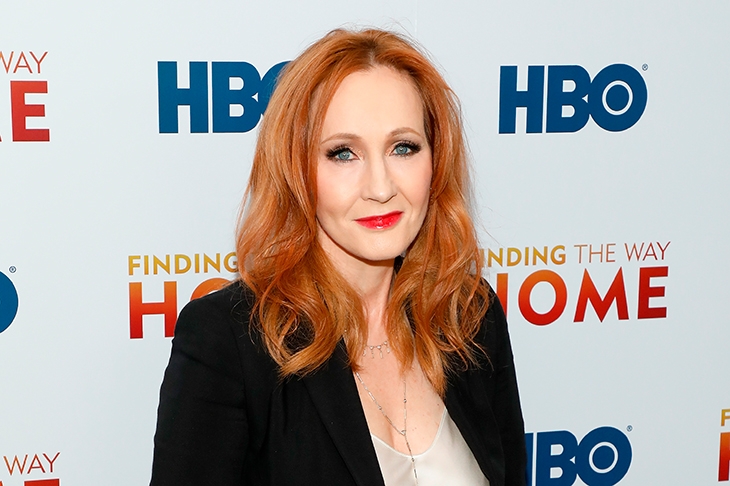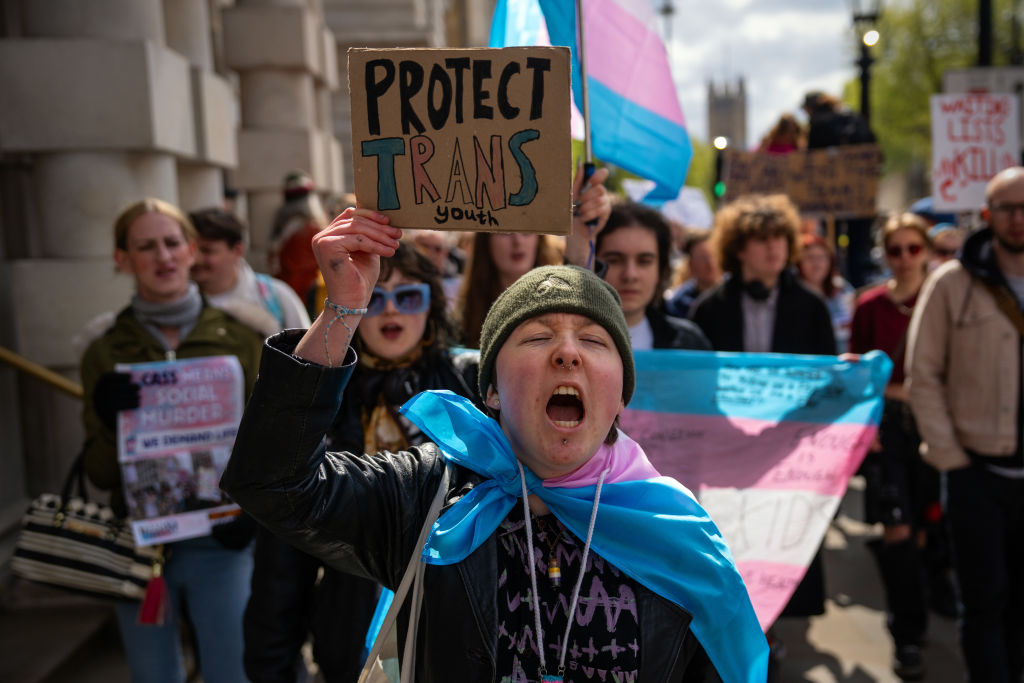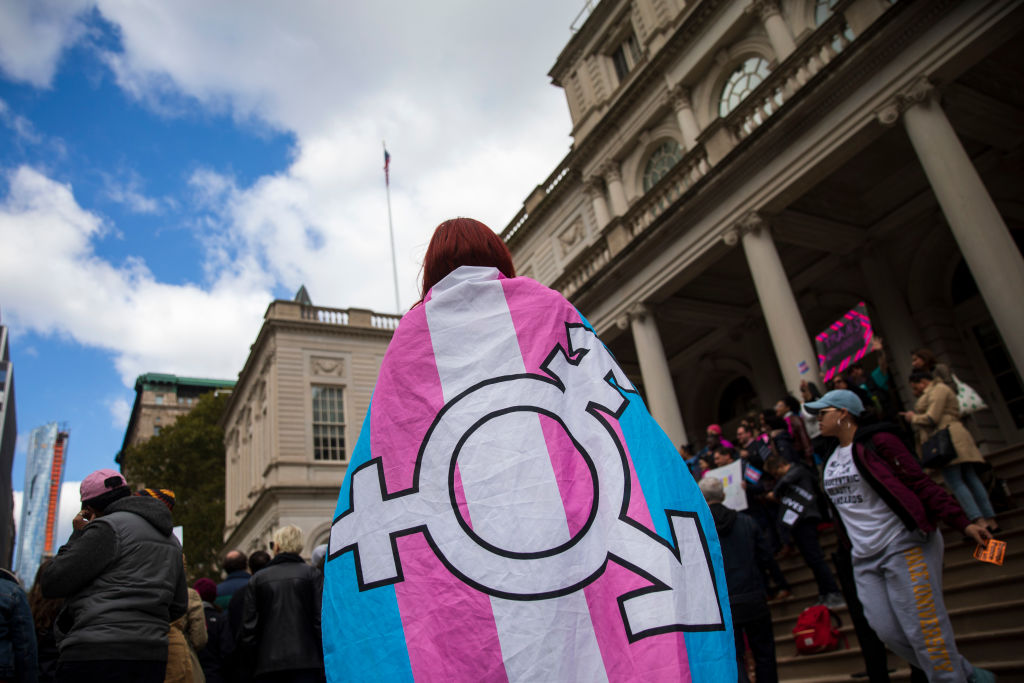I had my first doubts about Lord Hall, the former director-general of the BBC, when he addressed a group of us BBC editors back in about 1999 in his role then as head of news. A pleasant, emollient man, he revealed that he was thoroughly enjoying reading the second Harry Potter book, which had recently been published. Grow up, Tony, I thought to myself. Get yourself some Dostoyevsky for Christ’s sake. Snobbish it well may be, but I can’t take seriously an adult displaying such infantile predilections (and this goes for those grown-up admirers of Philip Pullman). Harry Potter was a big sensation at the time. I remember being on the train into London from Salisbury, on the morning commute, and seeing a middle-aged man wearing shorts, eating a packet of crisps and engrossed in Harry Potter and the Chamber of Secrets. I watched him for ages, fully expecting him to tug on the sleeve of a fellow commuter and plead: ‘Can I have some more crisps please? PLEASE?’ And then start crying.
Our childhood days may have been halcyon, but they were also moronic and, more to the point, they are gone. Kidultry is just one more facet of the don’t-judge-me cretinous society we now all inhabit and which I refer to as the Disenlightenment. We need much more intellectual snobbery and also the rehabilitation of passé concepts such as embarrassment, stigma and shame. I will judge you, whether you like it or not, you stunted halfwit. Exiting the train — detraining, in the modern parlance — at Waterloo I muttered under my breath, ‘May you die in loneliness’. Later I felt bad, fearing he wasn’t an adult at all but one of those poor children afflicted with a horrible aging disease and was actually 11. But he didn’t seem to have a ‘carer’ with him, someone like the UK health secretary Matt Hancock to tell him to wash his hands and eat some vegetables and explain that wizards don’t really exist and that broomsticks are only good for sweeping the floor.
I would have loved the Harry Potter books if I had been 11 when they came out. I felt envious of my kids as they plowed through them, mesmerized, and then happily relived each moment through the films. Full of mystery, drama, inventiveness, adventure, the stories also have that cliqueiness children really adore. J.K. Rowling fully deserves her success and riches. That she now seems to be systematically wrecking her career on a point of principle is perhaps even more commendable.
For some time, Rowling has been engaged in a vicious battle with the transgender lobby and those many who, for reasons of inherited stupidity, sign up to its absurd shibboleths — especially the one insisting that a man who transitions to a woman actually is a woman. She has been waspishly funny about institutions referring to ‘people who menstruate’ rather than ‘women’. Despite an avalanche of odium from the woke forces, the Twitter campaigns and the petitions, she refuses to recant.
And now she has upped the ante even further, having written a book (presumably for adults) in which a bloke dressed as a woman goes around killing people. It is called Troubled Blood and the trans-berserk and their fellow travelers are bed-wetting and shrieking once again. One semi-literate idiot, who writes for Metro, proclaimed: ‘A serial killer in J.K.’s new book is trans. For someone who has said she “loves” and “supports” trans people, perhaps she should support them by avoiding deeply harmful tropes about our community. But she doesn’t care — this is deliberate. It’s gross.’
Good for Rowling, then — although I haven’t read her book. My only problem is that once again we are in Suzanne Moore territory: a fascinating landscape in which clichés abound and all kinds of petards hoist and chickens come home to roost. Much as with Ms Moore, now reveling in her own Terf victimhood, we would surely have more respect for Rowling’s battle against trans lunacy were her enemies not simply a slightly more extreme manifestation of a divisive, foolish, identitarian madness that she herself has connived with in the past.
[special_offer]
In the early Harry Potter books, most of the characters were white and straight (and attending a caricature of an English public school). They sold extremely well — but Rowling received criticism for lack of diversity from the perpetually outraged, including a piece in the Guardian which complained that her depiction of the house elves was racist. (One of the letters that followed pointed out there were no disabled people hobbling about either.) As the protests grew shriller, Rowling decided — long after the series was finished — that maybe Hermione Granger, one of the principals, was black, despite being described as ‘pale’ and ‘white’ in the books. She also retrospectively assigned to Professor Dumbledore the status of homosexual — for no reason other than that the deranged liberal left were howling about that ‘lack of diversity’. As one writer put it in the Independent: ‘The faith, race and sexuality of her characters has been shoehorned in retroactively, and it can’t help but ring hollow.’
Well, indeed. Rowling’s mistake was to try to gain brownie points from the terminally demented. When she wrote her first book, she did not conceive of Hermione being black any more than she envisaged Dumbledore batting for the other side.
Two other thoughts occur. First, the very lack of diversity — i.e. what the rest of us might call familiarity — may have been one small reason for those books’ success. People, especially young people, revel in the familiar. Second, if she had portrayed Hermione as black, she would now be castigated for Writing About That Which She Does Not Know. A white author pretending she might understand how a black character acts and feels? Disgusting. Bang goes the petard, Rowling. Never try to appease a dementor.
This article was originally published in The Spectator’s UK magazine. Subscribe to the US edition here.

























